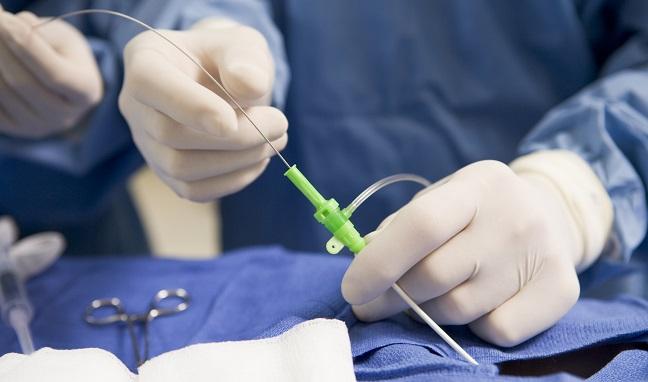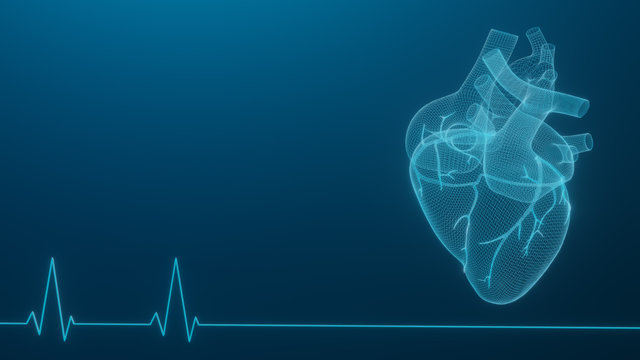Lifelong heart habits from Dr Garcia you can adopt today
Lifelong heart habits from Dr Garcia you can adopt today
Blog Article
Recognizing the Value of Cardiology in Modern Medical Care Services
Cardiology plays a vital role in contemporary health care, specifically as heart problem continues to be the leading reason for mortality worldwide. Breakthroughs in diagnostics and therapy have actually changed individual care, allowing earlier treatments and boosted results. Moreover, the shift in the direction of preventive cardiology encourages people to manage their health proactively. As innovation remains to advance, the assimilation of ingenious options might additionally redefine cardiology's influence on public health and wellness, motivating a closer exam of arising fads and their ramifications.
The Frequency of Heart Problem and Its Effect On Public Wellness
Heart illness stays the leading cause of death around the world, its impact extends much beyond specific patients to affect public wellness systems and economies. The high prevalence of heart problem places a substantial strain on medical care sources, demanding increased funding for prevention, recovery, and treatment programs. Public health and wellness campaigns should resolve risk aspects such as obesity, smoking cigarettes, and less active lifestyles, which add significantly to the climbing occurrence of heart conditions.Moreover, the economic problem related to heart problem is immense, encompassing not only direct medical costs but also indirect expenditures connected to lost productivity and early mortality. Communities face obstacles in taking care of these prices, often resulting in disparities in healthcare gain access to and outcomes. As the populace ages and lifestyle-related dangers continue to rise, the urgency for effective cardiology interventions ends up being paramount. As a result, dealing with heart problem is not just an issue of specific health and wellness yet also an essential public health and wellness top priority.
Advances in Heart Diagnostics and Imaging Techniques
Recent innovations in heart diagnostics and imaging methods have actually reinvented the field of cardiology, improving the capability to check and detect heart diseases. Methods such as heart MRI, CT angiography, and echocardiography have actually ended up being significantly advanced, providing thorough pictures of cardiac frameworks and functions. These methods permit the very early identification of problems like coronary artery disease, cardiac arrest, and valvular disorders.Moreover, improvements in non-invasive diagnostics, such as wearable technology and remote tracking tools, have actually equipped individuals and medical care service providers. These tools promote real-time monitoring of heart rhythms and various other vital indicators, resulting in prompt treatments. In addition, man-made intelligence is being incorporated right into imaging evaluation, boosting precision and effectiveness in medical diagnosis.
Technologies in Treatment Options for Heart Issues
Recent developments in cardiology have actually brought about significant technologies in treatment choices for heart problems. These consist of advanced surgical strategies that enhance procedural results and arising drugs that offer new methods for therapy. As the field advances, these innovations play an important duty in boosting individual treatment and results.
Advanced Surgical Techniques
Innovations in medical methods have actually transformed the landscape of cardiology, supplying brand-new hope for clients with heart disease. Minimally intrusive treatments, such as catheter-based treatments, have substantially reduced healing times and healthcare facility remains. Methods like robotic-assisted surgical procedure boost accuracy, permitting specialists to browse intricate physiological frameworks with better accuracy. Moreover, innovations in imaging innovation help with real-time visualization during treatments, boosting results. Transcatheter aortic valve substitute (TAVR) exhibits an innovation in dealing with aortic constriction, allowing shutoff replacement without open-heart surgical treatment. In addition, hybrid methods that integrate catheter-based and surgical techniques give customized solutions for various cardiac problems. These advanced medical methods not just improve patient safety but additionally broaden therapy alternatives, emphasizing the critical duty of technology in modern cardiology techniques.
Arising Therapies and medicines
As the landscape of cardiology remains to advance, arising medicines and therapies play an essential function in enhancing treatment alternatives for heart problems. Innovations such as novel anticoagulants and progressed lipid-lowering representatives have changed the administration of heart diseases, substantially minimizing client morbidity and death. In addition, the growth of gene therapies and regenerative medicine supplies appealing opportunities for dealing with conditions formerly regarded permanent. Medical trials are continually disclosing the efficacy of these therapies, pushing the boundaries of traditional treatments. The assimilation of electronic health and wellness innovations helps with personalized medication, enabling for customized treatment strategies based on genetic and way of living elements. Collectively, these improvements highlight the vibrant nature of cardiology, improving individual results and redefining requirements of care in modern-day medical care.
The Duty of Preventive Cardiology in Client Care
Preventive cardiology plays a crucial function in individual treatment by focusing on the identification of danger elements that add to heart condition. Via way of life modification methods and early detection methods, doctor can efficiently minimize the incidence of cardio events - Dr Garcia. This positive strategy not only boosts client results however likewise advertises long-lasting health
Risk Element Recognition
While cardio conditions continue to be a leading source of morbidity and mortality worldwide, effective risk factor identification works as a keystone of preventive cardiology. Recognizing threat factors such as hypertension, family members, hyperlipidemia, and diabetic issues history is important for very early intervention. Medical care specialists make use of different screening techniques to review these aspects, enabling customized safety nets. Furthermore, comprehending a patient's way of living options, such as smoking and physical lack of exercise, additionally notifies danger assessments. This thorough analysis allows clinicians to develop customized care strategies intended at mitigating dangers. By focusing on danger variable identification, health care systems can improve patient results and reduce the general worry of heart diseases, inevitably adding to boosted public find more health and wellness approaches and source allotment.
Way Of Living Adjustment Methods
A wide variety of studies highlights the vital role of way of living adjustment strategies in decreasing cardiovascular illness threat. These methods incorporate dietary changes, enhanced exercise, smoking cessation, and weight administration. By taking on a heart-healthy diet abundant in fruits, veggies, whole grains, and lean healthy proteins, individuals can lower cholesterol degrees and high blood pressure. Normal physical task strengthens the heart and improves overall cardiovascular wellness. Additionally, stopping cigarette smoking greatly lowers the danger of cardiovascular disease and boosts recovery rates for those with status quo. Weight monitoring further adds to cardio health by minimizing other threat elements such as diabetes and hypertension. Applying these lifestyle transforms not only promotes specific health but additionally acts as a keystone of preventive cardiology in patient treatment.
Early Detection Techniques
Way of life modifications greatly add to lowering cardio condition risks, however they are most effective when matched with early detection methods. Preventive cardiology emphasizes the relevance of recognizing prospective heart concerns prior to they rise into significant problems. Strategies such as blood pressure monitoring, cholesterol testing, and progressed imaging technologies like echocardiograms play essential duties in assessing cardiovascular health and wellness. Biomarkers and genetic testing also enhance the precision of very early detection, enabling for tailored preventive methods. Regular cardiac danger examinations equip healthcare carriers to intervene proactively, potentially preventing heart attacks and strokes (Cardiologist near me). By integrating these early discovery techniques into routine care, patients can gain from prompt way of living treatments and targeted treatments, ultimately enhancing outcomes and improving top quality of life
Integrating Modern Technology Into Cardiology Practices
As improvements in innovation continue to reshape numerous areas, the integration of innovative devices and systems right into cardiology practices has actually ended up being necessary for boosting individual care and end results. Telemedicine platforms permit cardiologists to monitor clients from another location, improving access to care while decreasing the worry on medical care centers. Wearable tools, such as smartwatches, enable continual heart rate tracking, notifying both clients and medical professionals to prospective issues in real-time. In addition, synthetic intelligence (AI) is being made use of to examine huge amounts of cardiac data, helping in very early diagnosis and customized treatment plans. Advanced imaging techniques, consisting of 3D echocardiography, boost visualization of heart frameworks, resulting in extra exact interventions. Electronic wellness records (EHRs) simplify client info monitoring, ensuring that cardiologists have immediate accessibility to critical data. Together, these technological developments are changing cardiology, advertising proactive monitoring and improved wellness outcomes for people with cardiovascular conditions.
The Relevance of Client Education and Engagement
Patient education and learning and involvement play a try these out pivotal function in the monitoring of cardiovascular health and wellness. By outfitting clients with understanding regarding their problems, therapy choices, and lifestyle changes, medical care suppliers equip people to take an active function in their treatment. This positive strategy can result in enhanced adherence to suggested drugs, dietary changes, and exercise routines, inevitably reducing the danger of complications.Engagement also promotes a strong patient-provider partnership, motivating open interaction and trust. When clients feel educated and entailed, they are a lot more most likely to voice concerns and ask inquiries, which can lead to far better scientific end results. In addition, instructional sources, such as workshops or electronic platforms, can enhance understanding and advertise self-management approaches. On the whole, prioritizing client education and learning and involvement is essential for enhancing cardiovascular health and wellness, boosting lifestyle, and minimizing health care expenses related to cardio conditions.
Future Fads in Cardiology and Their Possible Effect

Frequently Asked Inquiries
What Lifestyle Modifications Can Lower Heart Illness Risk?
The existing question addresses way of life changes that can substantially decrease cardiovascular disease danger. Cardiology. Embracing a well balanced diet, involving in routine physical activity, keeping a healthy and balanced weight, taking care of stress and anxiety, and preventing tobacco can significantly boost cardio health and wellness
How Can I Recognize Early Indicators of Heart Problems?
Acknowledging very early indicators of heart issues includes tracking signs such as upper body discomfort, shortness of breath, exhaustion, and irregular heartbeat. Timely awareness of these signs can prompt necessary medical analysis check my source and treatment for better results.
What Are the Differences In Between Cardiologists and Cardiac Surgeons?
The distinctions in between cardiologists and heart cosmetic surgeons depend on their functions; cardiologists mainly manage and diagnose heart disease through non-invasive methods, while heart cosmetic surgeons carry out medical treatments to remedy architectural heart issues. Each plays a vital, distinct role.

Exactly how Often Should I Get My Heart Wellness Checked?
The frequency of heart medical examination varies based upon private threat elements. Usually, grownups should undergo evaluations each to 2 years, while those with current conditions may call for even more regular analyses as advised by healthcare experts.
What Function Does Genetics Play in Heart Condition Danger?
Genes significantly affects heart problem danger, with domestic patterns showing inherited problems. Details genetics can incline people to hypertension, cholesterol problems, and other cardiovascular problems, highlighting the significance of genetic testing in reviewing heart health and wellness. Heart condition stays the leading reason of fatality worldwide, its influence extends far beyond private patients to affect public health systems and economic climates. Public health efforts need to address threat variables such as obesity, cigarette smoking, and less active way of lives, which contribute greatly to the increasing incidence of heart conditions.Moreover, the financial problem associated with heart illness is immense, encompassing not just straight clinical expenses but likewise indirect costs related to shed productivity and premature mortality. Precautionary cardiology plays a vital function in person treatment by concentrating on the identification of risk factors that contribute to heart illness. Synthetic knowledge (AI) and device understanding are enhancing diagnostics and client tracking, allowing early detection of heart illness. The differences in between cardiologists and heart doctors exist in their roles; cardiologists primarily identify and manage heart problems with non-invasive approaches, while heart surgeons execute medical procedures to fix structural heart concerns.
Report this page